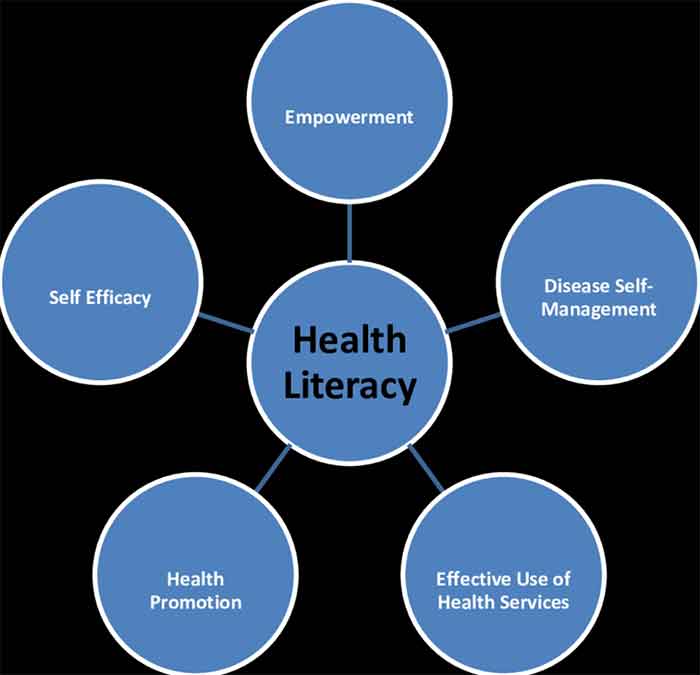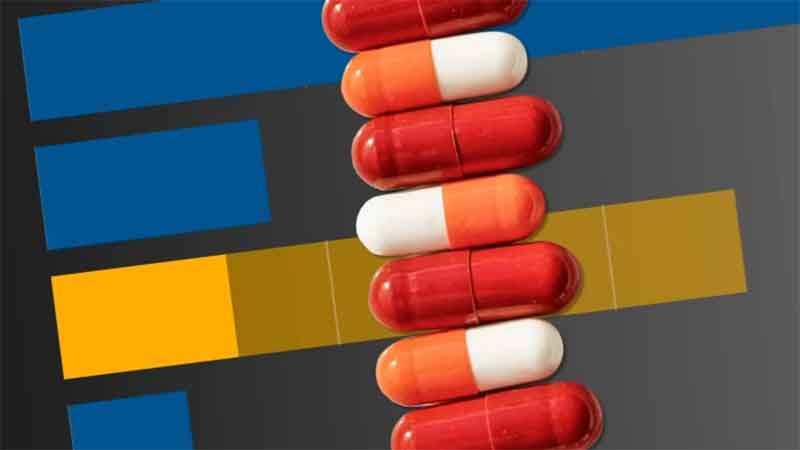Co-Written by Parul Malik, Arathi P Rao, Urvashi Priyadarshini & Sudhamshi Beeram

The WHO Health Promotion Glossary describes health literacy (HL) as the empowerment of the individuals to gain and apply health related knowledge effectively. It involves more than just ‘acquiring’ information about diseases and health conditions. It is influenced by socioeconomic, environmental, and demographic factors, as well as by the health status, health care access and the nature of any forthcoming educational directives and/or materials etc. Those with limited education or inadequate access to technology and technological skills may have difficulties in finding the broader health care options and in accessing the appropriate level of healthcare. There may even be under or non-utilization of the existing resources.
In the scenario of a pandemic striking, any health system comes under immense pressure to manage the situation. There is an increase number of patients and the requirement of more beds, trained healthcare workers and hospital equipment. The consequences on all the departments and indirect impact on non-infected patients must be anticipated and dealt with. Commitment of hospital staff and health authorities must be ensured by an effective leadership and provision of their safety. Also, communication must be organized with the wider public. In such a situation, prevention, control and management of NCDs, even though of paramount significance, gets neglected, unintentionally. The recent COVID-19 highlights importance of managing NCDs as people with comorbidities are more vulnerable to acquire the infection and for the worsening of the disease. Also, with the stay-at- home orders, isolation, physical distancing etc. outdoor activities have become constrained, leading to reduction in physical activity. There is poor management of behavioural risk factors with increase in alcohol consumption and smoking and unhealthy diets becoming rampant as the pandemic advances.
The burden of diseases globally and especially in the low- and middle-income countries (LMICs) is swiftly transitioning from communicable to non-communicable diseases (NCDs) leading to significant illness and disability. Also, seven out of ten deaths around the world can be attributed to NCDs (Cancers, diabetes, cardiovascular diseases and stroke), with a high proportion (85%) of the premature NCD deaths occurring in LMICs.
Health literacy level of a population is one of the major determinants of a patient’s ability to manage and maintain their health status by oneself. Existing evidence suggests that there is a consistent association between low HL and poorer disease-related knowledge, poorer self-efficacy and poorer beliefs in various communicable as well as non-communicable diseases. “Self-management” of an ailment is one of the important practical applications of health literacy. The domain of self-management for NCDs is not new and refers to practices that enable patients to better manage their health condition(s) on a day-to-day basis. It usually requires behavioural and environmental changes to be incorporated into daily practice and is therefore a cost-effective approach as availing medical care can sometimes be an expensive affair, depending upon the condition the patient is suffering from.
Also, the long waiting hours at the overloaded clinics and the very limited healthcare manpower and resources, particularly in the LMICs, self-management strategies being paramount for effective managment of a range of chronic diseases. Low HL could affect behaviors necessary for the development of these skills and thus pose a considerable health concern.
Taking measures to build a good health literacy can go a long way in handling the NCD crisis. Ample evidence is available to support this, and various studies conducted show better self-management practices in patients with good HL. A social media-based, HL-sensitive diabetes management intervention showed effective results in mitigating the disadvantages faced by people with low health literacy when attempting self-care. Associations have been established between high HL levels and better adherence to medication, enhanced Health-related quality of life (HRQL) and higher follow up with the physician, especially because of the self-identification of symptoms that need attention. Technological interventions such as smartphone applications etc. and non-technological medium like educational materials, personal training sessions and social support groups etc. are facilitators for managing a disease condition by self.
Self-management therefore comes to the rescue as a tool for effectively tackling non-communicable diseases. To aid this, enhancing health literacy levels of the population in the “pandemic-free” periods can lead to better health outcomes, if and when any such a biological disaster were to strike again. Also, the period “during a pandemic”, though chaotic, is also a time when people tend to be more receptive to health-related messages due to the anxiety to go to a hospital for maintaining their health. Health literacy oriented self-management interventions and practices, tailor made across the age groups, ought to be devised and implemented, at all times, to ensure continuum of care and thereby reduce NCD related morbidity and disability, as well as to reduce the mounting pressures on the healthcare systems in place in any country, particularly during a pandemic.
Dr. Parul Malik is a medical doctor with a Master of Public Health (Global Health) degree from Prasanna School of Public Health, Manipal Academy of Higher Education (MAHE), Manipal, India.
Dr. Arathi P Rao is the Coordinator of MPH Programme and the Head of Manipal Health Literacy Unit at the Prasanna School of Public Health, Manipal Academy of Higher Education (MAHE), Manipal, India.
Dr. Urvashi Priyadarshini is a dental surgeon and is currently a postgraduate student, pursuing Master of Public Health (Health Policy) at Prasanna School of Public Health, Manipal Academy of Higher Education (MAHE), Manipal, India.
Dr. Sudhamshi Beeram has a bachelor’s degree in Naturopathy and Yogic Sciences and is currently a postgraduate student, pursuing Master of Public Health (Global Health) at Prasanna School of Public Health, Manipal Academy of Higher Education (MAHE), Manipal, India.
SIGN UP FOR COUNTERCURRENTS DAILY NEWSLETTER















































